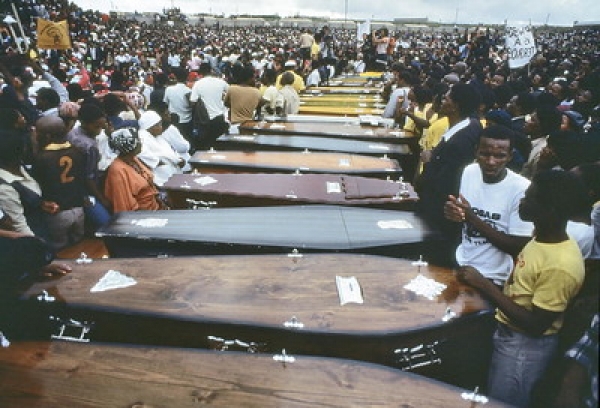Investigating crimes against humanity to hold perpetrators accountable is a crucial duty for justice systems across the world, yet it is often inadequately executed. Many cases never make it to trial, failing to provide justice for victims and furthering widespread impunity. A report published by The International Center for Transitional Justice (ICTJ) in collaboration with The Foundation for Human Rights (FHR) addressed this issue, seeking to better understand differences in how nations investigate international crimes against humanity.
ICTJ focuses on human rights violations across the globe, working to “challenge the causes and address the consequences” of them. The victims are always at the forefront of ICTJ’s actions, as they work to fight impunity while pushing nations to build responsive institutions. FHR is a human rights nonprofit out of South Africa that was established in response to apartheid: aiming to ensure transformation and establish human rights in light of the new constitution. Furthermore, FHR has played a crucial role in prioritizing the rights of victims when looking at apartheid-era crimes. This study was carried out in an effort to persuade the South African government to fund a formal institution dedicated to investigating crimes carried out during apartheid. Intensive qualitative research and interviews with experts were conducted in order to arrive at the conclusions that follow.
The report highlights the drastic differences between nations that leave the investigation of these complex crimes up to their general law enforcement services versus those that establish specialized units. Ultimately, the results conclude that specialized units bring more efficiency and effectiveness. Nations that fund and support these agencies exhibit an increase in the number of international and historical crimes investigated as well as the number of individuals prosecuted and convicted.
Specialized agencies come in a variety of forms, typically operating within state prosecutorial or police offices and comprising a diverse team with relevant expertise. Complex criminal cases are tackled, focusing on issues that threaten national security, financial stability, and/or vulnerable groups. Additionally, high-threshold international crimes, including crimes against humanity, become the units’ responsibility as they fall under international law.
Three types of specialization units are discussed: historical, new-generation, and mixed-mandate. Historical units investigate human rights violations in relation to a specific time period, event, or territory, such as crimes that occurred under violent leadership. New-generation units are often a response to nations’ obligations outlined by the Rome Statute. These units investigate ongoing crimes against humanity and international crimes, as well as having jurisdiction to investigate major crimes in other nations. Lastly, mixed-mandate units combine key aspects of both historical and new-generation units; they deal with crimes that are ongoing and in the past. Additionally, this type of unit responds to organized crime, intense corruption, and transnational crime.
Case studies of nations’ specialized units provide an outlook on what setups and methods produce the highest level of effective prosecution. Argentina and Germany offer models of properly implemented historical units- both of which investigate crimes committed under federal dictatorships. These examples have a centralized focus, which allows for intense and effective investigation tactics that bring success. Argentina has carried out 3,525 individual investigations and 1,044 convictions (as of Sep 2021) while Germany has pursued 18,661 prosecutions and 6,552 convictions of crimes conducted under Nazi rule (as of Jan 2021). Germany also has a successful new-generation system, made up of 2 offices that work to fight against impunity for international crimes. As of July 2020, the small team had over 100 cases, many of which related to the conflict in Syria.
This report also highlights case studies of nations whose lack of specialized units has prevented real progress from occurring. The United Kingdom’s unorganized, inadequate response to the “Great Troubles” between 1968-1998 offers insight into the negative impacts that come with a generalized approach to these criminal investigations. Devastatingly, 3,500 people were killed in the 30-year period, yet an investigation team was not created until 2012, which was composed of a mere 30 detectives. Due to a lack of resources and experts, 3,269 murders remain unsolved.
Specialized units face many challenges including political manipulation, limited access to evidence, and attempts to merge units. To tackle these challenges and operate efficiently, the report offers a few key recommendations. Success is often seen in units with prosecutorial-led investigations, as prosecutors and investigators collaborate. Furthermore, specialized units’ operations are strengthened when they obtain political support and cooperate with civil society organizations.
States with specialized units were concluded to be more effective; they are better equipped to handle international investigations than general law enforcement and thus can better deliver justice to victims of crimes against humanity. As demonstrated in the report, states with specialized units produce higher numbers of prosecutions and rates of convictions than those who neglect to distinguish these investigations from other criminal justice operations.
Original report available here: https://www.ictj.org/sites/default/files/2022-03/ICTJ_Report_Specialized_Units_Web.pdf
by Nicole Piusienski




